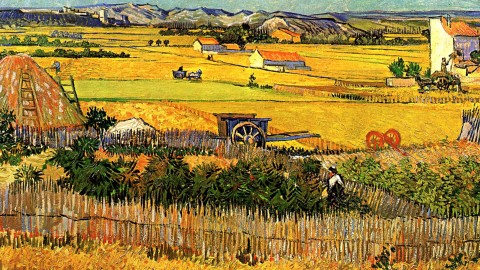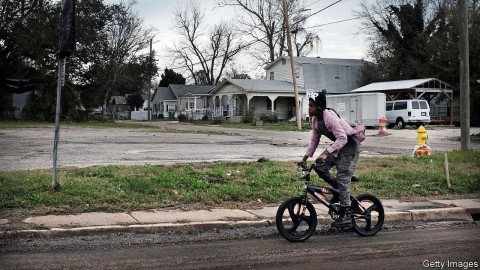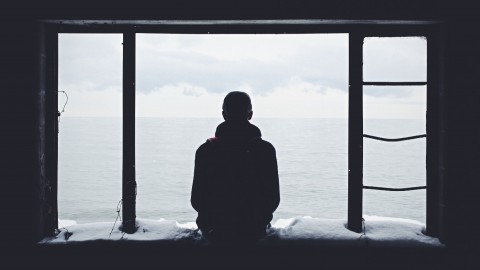From the 1st Sutra we may have few questions.
TOTAL DESPAIR, FRUSTRATION AND HOPELESSNESS IS THE BEGINNING GROUND FOR YOGA. THIS GIVES YOGA A PESSIMISTIC LOOK. IS THIS PESSIMISTIC STATE REALLY NECESSARY TO BEGIN THE PATH OF YOGA? DOES AN OPTIMIST ALSO BEGIN WITH THE PATH OF YOGA?
It is neither. It is not pessimistic, it is not optimistic, because pessimism and optimism are two aspects of the same coin. A pessimist means one who was optimist in the past; an optimist means one who will be pessimist in the future. All optimism leads to pessimism, because every hope leads to hopelessness.
If you are still hoping, then yoga is not for you. The desire is there; hope is there; the samsar is there, the world is there. Your desire is the world, your hope is the bondage, because hope will not allow you to be in the present. It will go on forcing you towards the future; it will not allow you to be centered. It will pull and push, but it will not allow you to remain in a restful moment, in a state of stillness. It will not allow you.
So total hopelessness means that hope has failed and hopelessness also has become futile. Then it is total hopelessness. Total hopelessness means even hopelessness is not there, because when you feel hopeless a subtle hope is there. Otherwise, why should you feel hopeless? Hope is there, you are still clinging to it; hence, the hopelessness.
Total hopelessness means now there is no hope. And when there is no hope there cannot be hopelessness. You have simply dropped the whole phenomenon. Both the aspects have been thrown; the whole coin has been dropped. In this state of mind you can enter the path of yoga; never before. Then there is no possibility. Hope is against yoga.
Yoga is not pessimistic. You may be optimistic or pessimistic; yoga is neither. If you are pessimistic, you cannot enter on the path of yoga because a pessimist clings to his miseries. He will not allow his miseries to disappear. Optimist clings to his hopes and pessimist clings to his miseries, to his hopelessness. That hopelessness has become the companion. Yoga is for one who is neither, who has become so totally hopeless that even to feel hopelessness is futile.
The opposite can be felt only if you go on clinging somewhere deep down with the positive. If you cling to hope you can feel hopelessness. If you cling to expectation you can feel frustration. If simply you come to realize that there is no possibility to expect anything, then where is the frustration? Then this is the nature of existence that there is no possibility to expect anything, there is no possibility for hope. When this becomes a certainty, how can you feel hopeless? And then both have disappeared.
Patanjali says, NOW THE DISCIPLINE OF YOGA. That “now” will happen only when you are neither. Pessimistic attitudes or optimistic attitudes both are ill, but there are teachers who go on talking in terms of optimism – particularly American Christian missionaries. They go on talking in terms of hope, optimism, future, heaven. In the eyes of Patanjali that is just juvenile, childish, because you are simply giving a new disease. You are substituting a new disease for the old. You are unhappy and you are seeking somehow happiness. So whosoever gives you an assurance that this is the path that will lead you to happiness, you will follow it. He is giving you hope. But you are feeling so much misery because of your past hopes. He is again creating a future hell.
Yoga expects you to be more adult, more mature. Yoga says there is no possibility to expect anything, there is no possibility of any fulfillment in the future. There is no heaven in the future waiting for you and no God waiting for you with Christmas gifts. There is nobody waiting for you, so don’t hanker after the future.
And unless you become aware that there is nothing which is going to happen somewhere in the future, you will become alert here and now because there is nowhere to move. Then there is no way to tremble. Then a stillness happens to you. Suddenly you are in a deep rest. You cannot go anywhere; you are at home. Movement ceases; restlessness disappears. Now is the time to enter yoga.
Patanjali will not give you any hope. He respects you more than you respect yourself. He thinks you are mature and toys will not help. It is better to be alert to what is the case. But immediately when you read “total hopelessness” your mind will say, “This appears pessimistic,” because your mind lives through hope, your mind clings to desires, expectations.
You are so miserable right now that you will commit suicide if there is no hope. If really Patanjali is true, what will happen to you? If there is no hope, no future, and you are thrown back to your present, you will commit suicide. There is nothing to live for then. You live for something which will happen somewhere, sometime. It is not going to happen, but the feeling that it may happen helps you to be alive.
That’s why when you have come to a point where suicide has become a meaningful thing, where life has lost all its meaning, where you can kill yourself, in that moment yoga becomes possible, because you will not be ready to transform yourself unless this intense futility of life has happened to you. You will be ready to transform yourself only when you feel there is no way – either suicide or sadhana, either commit suicide or transform your being. When only two alternatives are left, only then yoga is chosen, never before. But yoga is not pessimistic. You are optimistic, then yoga will appear to you as pessimistic. It is because of you.
Buddha has been taken in the West as the peak of pessimism because Buddha says life is dukkha, anguish. So western philosophers have been commenting on Buddha, that he is a pessimist. Even a person like Albert Schweitzer, a person we can expect to know certain things, even he is in confusion. He thinks the whole East is pessimistic. And this is a great criticism for him. The whole East – Buddha, Patanjali, Mahavira, Lao Tzu, they are all pessimists for him. They appear! They appear because they say your life is meaningless. Not that they say life is meaningless – life that you know. And unless this life becomes absolutely meaningless, you cannot transcend it. You will cling to it.
And unless you transcend this life, this mode of existence, you will not know what bliss is. But Buddha, Patanjali, they will not talk much about bliss just because they have a deep compassion for you. If they start talking about bliss, you again create a hope. You are incurable: you again create a hope. You say, “Okay! Then we can leave this life. If a more abundant life, a richer life is possible, then we can leave desires. If through leaving desires the deepest desire of reaching to the ultimate, the peak of bliss, is possible, then we can leave desires. But we can leave only for a greater desire.”
Then where are you leaving? You are not leaving at all. You are simply substituting a different desire for the old ones. And the new desire will be more dangerous than the old because with the old you are already frustrated. To get frustrated with the new, you may take even a few lives – to come to a point where you can say God is useless, where you can say heaven is foolish, where you can say all future is nonsense.
It is not the question of worldly desires, it is the question of desire as such. Desiring must cease. Only then you become ready; only then you gather courage; only then the door opens and you can enter into the unknown. Hence, Patanjali’s first sutra: NOW THE DISCIPLINE OF YOGA.
Tags: Deep Rest Movement Ceases Total Hopelessness










